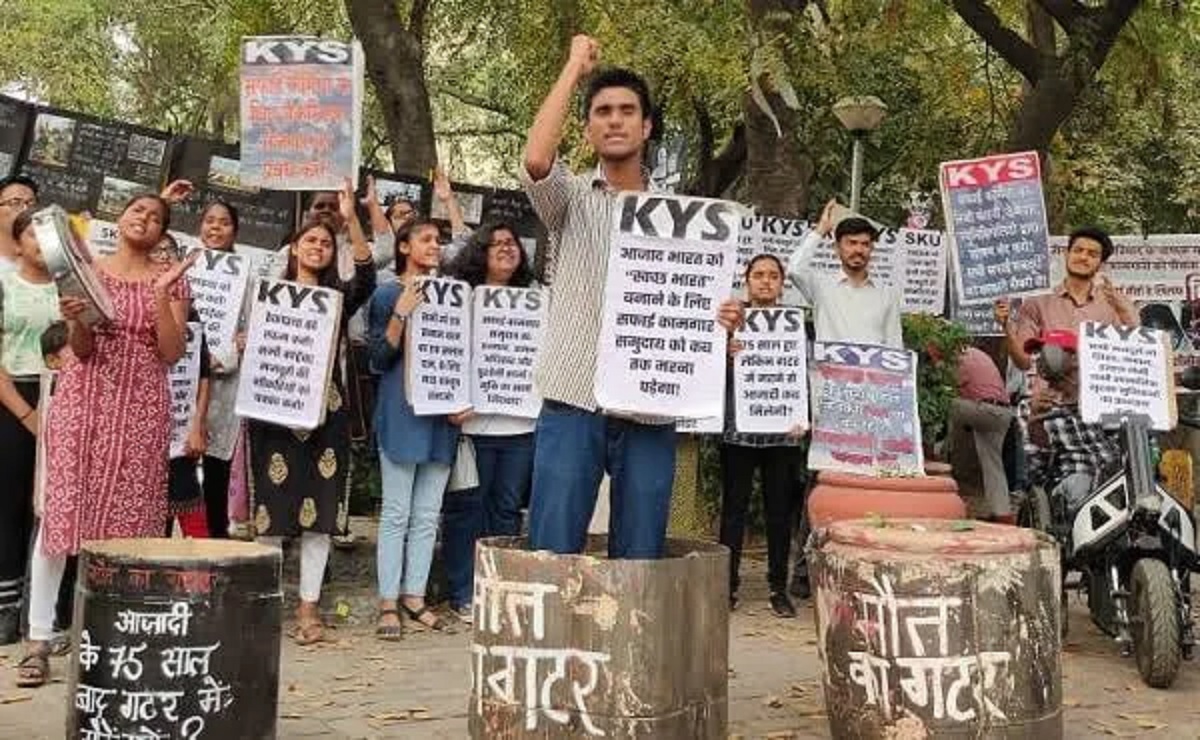On 20 May, Vijay Valmiki, a sanitation worker who was posted at Paschimabad was found hanging from a tree in Jawaharlal Nehru University (JNU). Earlier in the day, he had performed his duties, and then within a short time died a tragic death.
Vijay Valmiki was a resident of Kusumpur Pahari. His wife and three minor children along with the family, and co-workers are in a state of shock.
“This death comes in the context of irregular and delayed wage payments to contract workers which has sometimes spanned months in JNU”, said a statement issued by the Jawaharlal Nehru University Teachers Association (JNUTA).
“The delays and irregularity have been especially compounded for sanitary workers in JNU who belong to the bottom most layer of the graded social labour hierarchy”, it added.
“This along with the increasing onerous contractualisation and casualisation of essential jobs which are perennial in nature is blatantly illegal”, JNUTA underlined, alleging, *The JNU administration has been committing these illegalies with impunity for years now. This is ironical for an administration that always flaunts itself as the ‘topmost’ university in the country.”
Pointing out that sanitary workers and other contract workers in JNU have been valiantly struggling against such Illegality and injustice, the statement, signed by JNUTA president and secretary Moushumi Basu and Syed Akhtar Husain, said, “Vijay Valmiki had been active in the struggle by his union against these illegal and unethical practices that the JNU administration has routinised, and had made significant contributions to the periodic victory of these struggles.”
Expressing immense grief and anger at the death of Vijay Valmiki, JNUTA said it “stands with his family and co-workers in securing justice for Vijay Valmiki”, even as demanding that the JNU administration should take responsibility for Vijay Valmiki’s institutional murder as the principal employer (as defined in the law) and meet the demands of his family, and co-workers, and those standing by his family to ensure that justice is done to his wife and children.
“JNUTA condemns the illegal and unethical practices of casualisation and contractualisation of jobs that are essential, perennial and permanent”, it said, calling on the JNU administration to immediately stop all violations of law” and “start with paying wages on time and regularly, and also begin the process of reversing the illegal contractualisation and casualisation of all perennial jobs in a time bound manner.”
Courtesy: CounterView

